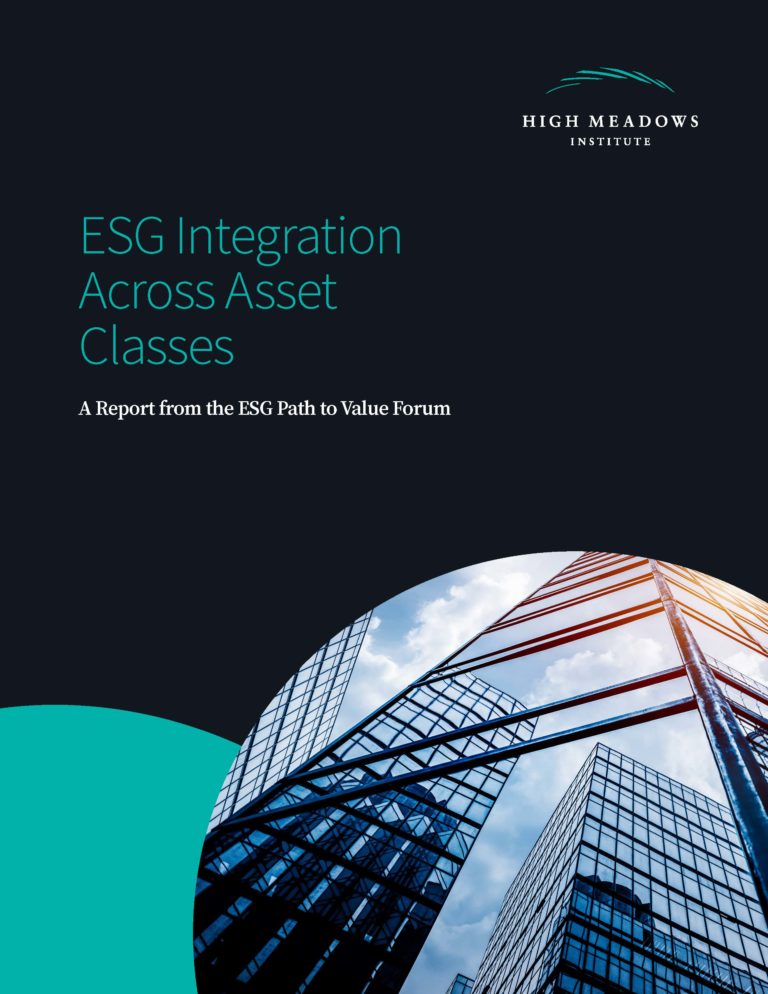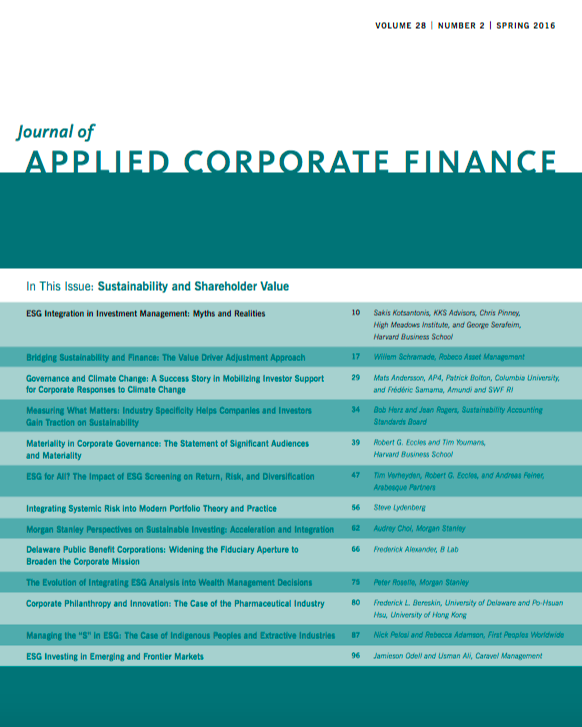The financial crisis of the late 2000s showed the damage that can occur when capital markets fail.
With climate change, resource scarcity and other megatrends trends posing a major risk to future global financial stability, investors can no longer assume that economic growth will come from the same industries that dominated the 20th century. In response, investment that takes environmental, social and governance factors into account – known as ESG investing – is on the rise, but still only represents a small proportion of global investments.
What is the best way to accelerate the growth of ESG investing and make it mainstream to ensure a focus on the long term, and stabilize our capital markets?
What is the ESG Path to Value Forum?
The ESG Path to Value Forum is an industry-only Forum that explores how can we make our capital markets more stable and focused on the long term. Participants of the Forum meet to explore how they and other key actors in the financial sector can make investment decisions that create long-term value for business and society.
By bringing together investment industry thought leaders with asset owners and managers across asset classes, the High Meadows Institute has facilitated the creation of a valuable platform for candid conversation and peer-to-peer sharing. Over 100 participants from 30 organizations have taken part in the Forum’s events and webinars since they started in 2015.
The Forum is a part of the Future of Capital Markets project, a wider project that seeks to address the challenge of unstable capital markets.



